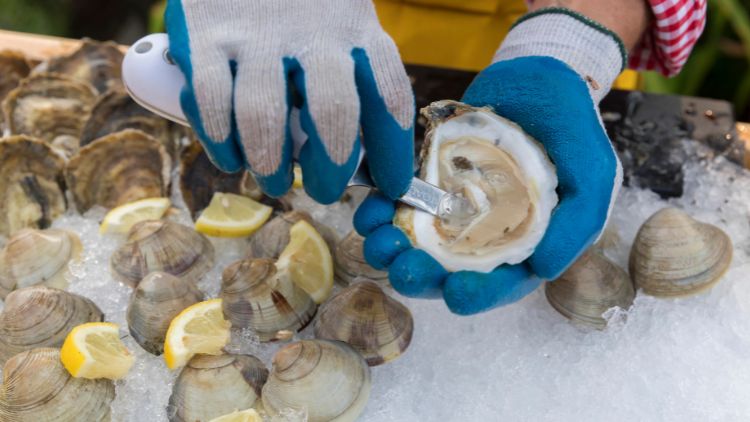If you live near the Gulf Coast or are planning to visit that part of the country, you need to be aware of a health risk and how to prevent it.
USA Today reports that a flesh-eating bacteria known as Vibrio vulnificus has been reported in Florida and Louisiana. Vibrio vulnificus is commonly called “flesh-eating” because the bacteria can cause infections that “eat away” at skin or body tissue.
That sounds pretty horrible, but thankfully, the bacteria is very rare; however, reports of cases of people being infected by this bacteria is higher than usual. In fact, in Louisiana, cases are the highest they have been in the past decade. So far, there have been 17 reported cases and 4 deaths. Meanwhile, in Florida, there have been 13 reported case and 4 deaths.
On July 30th, the Louisiana Department of Health issued a warning stating, “Amid increasing water temperatures and extreme weather events (e.g., heat waves, flooding, and severe storms), people who are at increased risk for V. vulnificus infection (those with weakened immune systems and conditions like liver disease, diabetes and kidney failure) … should exercise caution when engaging in coastal water activities.”
Vibrio vulnificus can cause spreading blisters, fever, low blood pressure, organ damage, sepsis and even d**th. It can cause necrotizing fasciitis, which is a bacterial infection that destroys skin tissue and muscles. Patients can die in just a few days.
Vibrio vulnificus only survives in salt water and thrives when the water is warm, like in the summer months. The bacteria cannot damage healthy skin. Instead, it can be contracted through cuts, scrapes, or if swallowed, such as when eating undercooked or uncooked seafood. The most common way to contract Vibrio vulnificus is by eating seafood such as raw oysters.
Once the bacteria is inside the body, it can spread quickly, such as in a few hours. That means it is very important to seek medical treatment right away. Common symptoms include fever and chills, a red, warm, swollen patch of skin that is painful and spreads quickly, fluid-filled blisters, skin discoloration, nausea, vomiting, diarrhea, low bl0*d pressure, confusion and a rapid heartbeat.
You can protect yourself from Vibrio vulnificus by only eating cooked seafood, cleaning surfaces that come in contact with raw seafood and washing your hands thoroughly after handling raw seafood. In addition, don’t enter salt water if you have open wounds including tattoos, piercings, cuts or scrapes. Cover any wounds that may come into contact with raw seafood, thoroughly wash any wound that comes into contact with raw seafood, and consider wearing protective shoes and clothing when you are near salt water, especially if you have a weakened immune system, liver disease, diabetes or kidney failure.
Watch the video below to learn more about Vibrio vulnificus and how to protect yourself.


